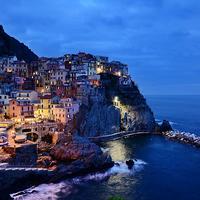五月初五话 端午
Dragon Boat Festival on the fifth day of May
Dragon Boat Festival le 5 mai
5月5日の端午の節句
今天 是 农历 五月初五 ,是 中国民间 的 传统节日——端午节。
Today is the fifth day of the fifth month of the lunar calendar. It is a traditional Chinese folk festival-the Dragon Boat Festival.
Aujourd'hui est le cinquième jour du cinquième mois lunaire, qui est un festival folklorique traditionnel chinois - le Dragon Boat Festival.
它是中华民族的传统节日之一,至今已有两千多年的历史。
It is one of the traditional festivals of the Chinese nation and has a history of more than 2,000 years.
端午节的由来有着不少的传说,最著名的就是为了纪念中国古代伟大诗人屈原。
The origin of the Dragon Boat Festival has many legends, the most famous is to commemorate the ancient Chinese poet Qu Yuan.
据史料记载,公元前 278 年农历五月初五 ,楚国爱国诗人屈原听到秦军攻破楚国都城的消息后。
According to historical records, on the fifth day of the fifth month of the lunar calendar in 278 BC, the patriotic poet Qu Yuan of Chu State heard the news that Qin Jun broke through the capital of Chu State.
悲愤交加 ,心如刀割 ,毅然写下绝笔作后 ,抱石投入汨罗江,以身殉国。
With grief and indignation, the heart is like a knife cut. After resolutely writing a masterpiece, bouldering is thrown into the Miluo River, and he lives in the country.
沿江百姓纷纷驾着船只 ,竞相打捞 ,还有的百姓沿着岸边做法招魂。
The people along the river drove boats and raced to salvage, and some people practiced their spirits along the shore.
并将粽子投入江中 ,以免鱼虾蚕食他的身体。
And put the dumplings in the river to prevent fish and shrimp from eating into his body.
这一习俗一直绵延至今,已经有两千多年的历史。
This custom has continued to this day and has a history of more than 2,000 years.
每年的农历五月初五就成为了纪念屈原的传统节日。
The fifth day of the fifth month of the lunar calendar every year becomes a traditional festival to commemorate Qu Yuan.
以后 ,在每年的五月初五 ,就有了赛龙舟、吃粽子、喝雄黄酒的风俗,以此来纪念爱国诗人屈原。
Later, on the fifth of May each year, there were customs of racing dragon boats, eating rice dumplings, and drinking realgar wine to commemorate the patriotic poet Qu Yuan.
其中,流传最广泛的就是端午节吃粽子了,所以端午节也叫做粽子节。
Among them, the most widely spread is to eat dumplings in the Dragon Boat Festival, so the Dragon Boat Festival is also called Zongzi Festival.
到了农历五月初五这一天,中国的百姓家里都要浸糯米、洗粽叶、包粽子,其花色品种更为繁多。
On the fifth day of the fifth month of the lunar calendar, people in China will be dipped in glutinous rice, washed with leaves, and steamed with buns.
从馅料看,北方基本上以小枣做馅,包出的粽子闻着香,吃起来甜丝丝的 ;
From the perspective of the filling, the northern part basically uses jujube as the filling, and the wrapped zongzi smells sweet and tastes sweet;
南方则有豆沙、鲜肉、火腿、蛋黄等多种馅料,真可谓口味繁多,应有尽有。
In the south, there are various fillings such as red bean paste, fresh meat, ham, and egg yolk.
吃粽子纪念屈原的风俗,千百年来,在中国盛行不衰,而且流传到朝鲜半岛、日本及东南亚 各国。
The practice of eating zongzi to commemorate Qu Yuan has been prevailing in China for thousands of years, and it has spread to the Korean Peninsula, Japan and Southeast Asian countries.
好了,欢迎您来到中国,一定要品尝一下粽子的美味哦。
Well, welcome to China. Be sure to taste the deliciousness of Zongzi.
好了,欢迎您收听“听新闻,说汉语”。
OK, welcome to "Listen to the News and Speak Chinese".
今天的节目就到这里了。
That's it for today's show.

